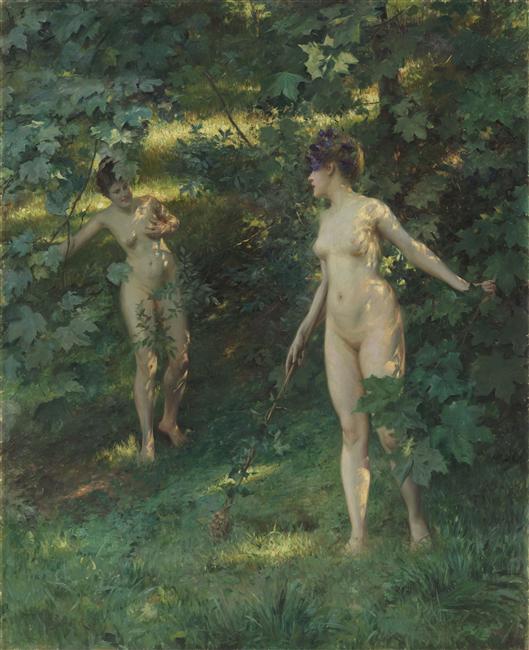
I'm happy to report that the author of the wonderful Femme Femme Femme site is in the process of switching hosts to avoid a shameful “Content Warning” unjustly appended to the site by Google, apparently as a result of complaints from unnamed viewers.
The site, as I've previously noted, posts images of women in art, including nudes, like the painting above, by Julius LeBlanc Stewart, but always with impeccable taste and discrimination. The idea that a few unhinged neurotics can force Google to label such a site “objectionable” is actually quite frightening. (Stewart's painting, incidentally, hangs in the Musée d'Orsay in Paris and has not to my knowledge inspired any widespread calls for its removal as an affront to public decency.)
Anyone who has a site hosted by Google should seriously consider switching to a different host immediately, as a protest, unless Google is willing to change its policy and apologize to the author of Femme Femme Femme. I know this would be a pain in the neck, but accepting Google's irrational policy might in the long run lead to an even greater pain in the neck, if a few kooks decide that your site is objectionable. So switch now if you possibly can and let Google know why you're switching.
Google, which has collaborated with the Internet censors of the totalitarian regime in China, has always argued that the Internet, in any form, will lead eventually to greater openness there. In fact, it seems to be leading to greater intolerance here.
The new Femme Femme Femme site, still under construction, can be accessed by following this link.

